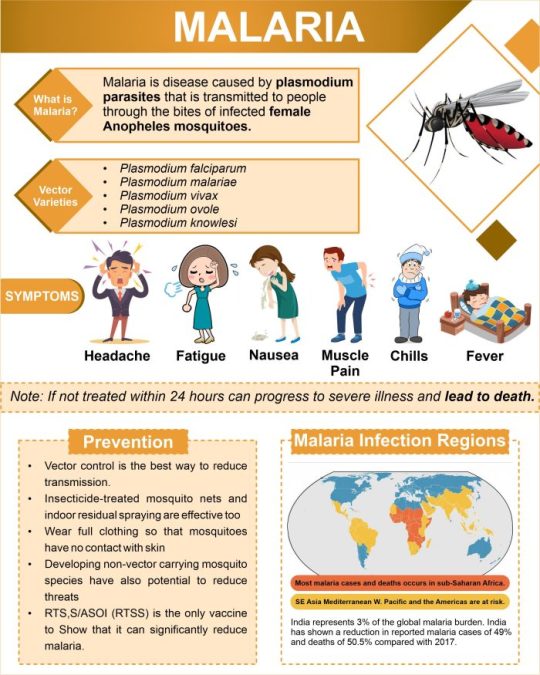#UPSC preparation.
Explore tagged Tumblr posts
Text
Join K3 IAS Weekly UPSC Tests – Online and Offline options in Indore
Enhance your UPSC preparation with K3 IAS. Every Wednesday, we conduct a class test featuring 20 questions on weekly current affairs, and statistic-related questions. You can take the test online or visit our Indore centre. Download the test paper PDF from our Telegram channel. For more details or questions, call the number on the screen. Choose K3 IAS for top UPSC coaching in Indore and stay ahead in your preparation.
#top UPSC coaching in Indore#Best UPSC Coaching in Indore#UPSC Coaching in Indore#best online coaching for UPSC#UPSC preparation.#UPSC preparation#mppsc and upsc coaching in indore#IAS Coaching Indore#ias best coaching in indore
1 note
·
View note
Text
MALARIA VACCINE
The Government of India has set a target to eliminate malaria in India by 2027.
It has developed a National Framework for Malaria Elimination (2016-2030) and a National Strategic Plan for Malaria Elimination for five years.
India shifted its focus from malaria control to elimination.
A roadmap was established to eliminate malaria in 571 out of India’s total 678 districts by 2022.
The Malaria Elimination Research Alliance-India (MERA-India) was formed under the Indian Council of Medical Research (ICMR).
The subject of "Malaria Vaccine" is covered in this article's coverage of "Daily Current Affairs". The Science and Technology segment of the UPSC CSE test has applicability for this topic. Rishabh has researched and written the article. Additionally, our faculty has reviewed this article. Click the “Malaria Vaccine” link to see the story's original version.

Plutus IAS has received praise for its continued success in offering top-notch and reasonably priced IAS coaching in Karol Bagh Delhi. Our students' everlasting gratitude proves our dedication to developing the next generation of Indian bureaucrats and administrators.
The importance of everyday current affairs cannot be overstated if you wish to succeed in competitive tests like Civil Services. On its website, Plutus IAS includes a separate section for current affairs.
#ias coaching in delhi#upscaspirants#upsccoaching#best ias coaching in delhi#civil services examination#ias#upsc exam preparation#education#iascoaching#plutus ias#malaria vaccine
60 notes
·
View notes
Text
Negative Habits to Avoid for UPSC Preparation
Imagine preparing for the UPSC exam is like setting off on a thrilling adventure. But just like any adventure, there are challenges to overcome. It takes a lot of hard work, sticking to your goals, and having a good plan. But, sometimes, even if you're really trying your best, you might find yourself doing things that could make it harder for you to succeed. In this guide, we'll explore common negative habits faced by UPSC aspirants and provide straightforward solutions to overcome them. By implementing these simple strategies, aspirants can navigate through challenges effectively and achieve success in their UPSC journey.
Procrastination - Putting Off Tasks

Procrastination is when we delay tasks or waste time on unimportant things. Many UPSC aspirants struggle with procrastination, which can lead to missed study sessions and last-minute pressure.
To overcome procrastination, break your study tasks into smaller, manageable parts. To create a sense of urgency, establish particular deadlines for every task. By taking small steps consistently, you can avoid procrastination and stay on track with your study schedule.
“You may delay, but time will not.”
― Benjamin Franklin
There are always distractions, if you allow them! Successful people remain optimistic and concentrated on their goals regardless of their surroundings. They stay focused. They avoid getting distracted, which is common in today's digital world. Social media, notifications, and other distractions can easily divert our attention away from studying.
To avoid distractions, create a dedicated study space that is free from potential distractions. Turn off notifications on your phone and use productivity tools to block distracting websites. Set specific times for studying and avoid multitasking. By minimizing distractions, you can improve focus and productivity during your study sessions.
Distractions - Losing Focus

“Work is hard. Distractions are plentiful. And time is short.”
― Adam Hochschild
Lack of Consistency

Consistency is really important for doing well in UPSC preparation. It’s key to success. However, many aspirants struggle to maintain a consistent study routine.
To overcome this, establish a daily study schedule and stick to it religiously. Make sure you stick to your study schedule and give it more importance than other things. Set realistic goals for each study session and keep checking how well you're doing. By making studying a habit and sticking to a consistent routine, you can maximize your productivity and progress in your UPSC preparation.
“Success isn't always about greatness. It's about consistency.
Consistent hard work leads to success. Greatness will come.”
― Dwayne Johnson
Neglecting Health and Adequate Sleep

UPSC preparation can be mentally and physically demanding, and many aspirants neglect their health in pursuit of their goals. However, neglecting your health can have negative consequences on your ability to study effectively. Sleep is essential for cognitive function, memory retention, and overall well-being. However, many aspirants neglect their sleep in favor of studying late into the night. This can lead to sleep deprivation, which can impair your ability to focus, concentrate, and retain information.
To prioritize your health, make sure to get an adequate amount of sleep each night. Aim for at least 7-8 hours of sleep to ensure that your mind and body are well-rested. In addition, make time for regular exercise and physical activity to reduce stress and improve overall well-being. Finally, don't forget to eat a balanced diet and stay hydrated to fuel your body and brain for studying.
Relying on One Study Method

Every aspirant has their own preferred study method, whether it's reading, taking notes, or practicing past papers. However, relying solely on one study method can limit your learning and comprehension.
To overcome this, try diversifying your study methods to engage different parts of your brain. For example, if you're used to reading, try incorporating more visual aids or discussing concepts with peers. Try out various methods of studying until you discover which one suits you the most. By diversifying your study methods, you can improve your understanding and retention of the material.
Negative self-talk can be dangerous to your confidence and motivation. Many aspirants struggle with self-doubt and fear of failure, which can hold them back from reaching their full potential.
To overcome negative self-talk, practice self-compassion and positive affirmations. Instead of focusing on your shortcomings, celebrate your achievements and strengths. Be around friends and family who support you and have faith in your skills. By cultivating a positive mindset and practicing self-love, you can overcome self-doubt and achieve success in your UPSC journey.
Negative Self-Talk - Self-Doubt

"One important key to success is self-confidence.
An important key to self-confidence is preparation."
― Arthur Ashe
Trying to Read Everything

UPSC aspirants are often overwhelmed by the sheer volume of reading material available. Many aspirants feel pressured to read every book and resource on a given topic, leading to stress and burnout.
To overcome this, focus on quality over quantity when it comes to reading. Prioritize essential books and resources that cover the core concepts and topics of the UPSC syllabus. Take notes as you read to help reinforce your understanding and retention of the material. Remember, it's better to thoroughly understand a few key concepts than to skim/go through numerous resources without grasping the core concepts.
Disorganization can hinder your ability to study effectively and efficiently. Many aspirants struggle to keep track of study materials, deadlines, and important dates.
To overcome this, create a study schedule and organize your study materials in a systematic manner. Use folders, binders, or digital tools to keep your study materials organized and easily accessible. Break down your study schedule into smaller, manageable tasks and set deadlines for each task. By staying organized, you can reduce stress and improve productivity in your UPSC preparation.
Lack of Organization

“For every minute spent organizing, an hour is earned.”
― Benjamin Franklin
Misplaced Study Groups

Study groups can be a valuable resource for UPSC aspirants, providing support, motivation, and shared knowledge. However, not all study groups are created equal, and some aspirants may find themselves in study groups that are not conducive to effective studying.
To overcome this, choose study partners wisely and find individuals who are serious and committed to their UPSC goals. Look for study groups or forums where you can engage with like-minded aspirants who share your dedication and enthusiasm for UPSC preparation. By surrounding yourself with supportive and motivated study partners, you can enhance your learning and stay on track with your UPSC goals.
Overcoming negative habits is essential for UPSC aspirants to succeed in their journey. By implementing simple strategies such as breaking tasks into smaller parts, minimizing distractions, maintaining consistency, prioritizing health, diversifying learning methods, fostering a positive mindset, finding a balance between work and study, focusing on quality reading, staying organized, choosing study partners wisely, using the internet judiciously, and prioritizing sleep, aspirants can navigate through challenges effectively and achieve success in their UPSC preparation. Remember, success in the UPSC examination requires dedication, perseverance, and a willingness to overcome obstacles. Keep pushing forward, stay focused on your goals, and believe in yourself—victory is within reach!
#upsc#education#upsc2024#upscpreparation#upscstudymaterial#quotes for upsc aspirants#quotes for students motivation#Misplaced Study Groups in UPSC Preparation#Lack of Organization in UPSC Preparation#Trying to Read Everything in UPSC Preparation#Negative Self-Talk - Self-Doubt#Relying on One Study Method#Neglecting Health and Adequate Sleep in upsc preparation#Lack of Consistency in upsc preparation#Distractions in upsc preparation#procrastination in upsc preparation#Procrastination#upsc syllabus ignorance#upsc exam strategy mistakes#ENSURE IAS coaching tips#upsc self-study bad habits#upsc time management mistakes#ENSURE IAS academy tips#upsc coaching center habits to avoid#upsc study routine mistakes#UPSC#bad habits for upsc exam#common mistakes in upsc preparation#ENSURE IAS preparation tips#negative habits for upsc aspirants
4 notes
·
View notes
Text
2 notes
·
View notes
Text
Understanding the UPSC CSE Exam: Insights into Exam Pattern and Eligibility Criteria
Are you aspiring to become a civil servant and serve the nation with dedication and commitment?
If so, the Union Public Service Commission (UPSC) Civil Services Examination (CSE) is your gateway to a prestigious career in the Indian bureaucracy. In this blog, we will delve into the crucial aspects of the UPSC CSE including the exam pattern and eligibility criteria, And also how Crack Academy to help you chart your path to success to crack UPSC.
1. What is UPSC CSE? The UPSC CSE is a highly competitive and renowned examination conducted by the Union Public Service Commission (UPSC) to recruit candidates for various prestigious civil services in India. These civil services include the Indian Administrative Service (IAS), Indian Police Service (IPS), Indian Foreign Service (IFS), and many others.
2. Understanding the UPSC CSE Exam Pattern: The UPSC CSE is a three-tier examination process:

2.1. Preliminary Examination:
It is the first stage of the UPSC CSE and consists of two objective-type papers: General Studies Paper-I and General Studies Paper-II (popularly known as the Civil Services Aptitude Test or CSAT).
Both papers carry equal weightage (200 marks each) and are conducted in offline mode (pen and paper-based).
General Studies Paper-I covers subjects like History, Polity, Economy, Geography, Science & Technology, Environment, and Current Affairs.
General Studies Paper-II (CSAT) evaluates candidates' aptitude in comprehension, logical reasoning, analytical ability, interpersonal skills, decision-making, and more.
2.2. Main Examination:
The Main Examination is the second stage of the UPSC CSE and consists of nine papers, out of which two are qualifying in nature: English and any Indian language of your choice.
The remaining seven papers are evaluated for merit and cover topics such as Essay, General Studies I, II, III, and IV, and Optional Subject Paper I and II.
Each paper is descriptive in nature, and the total marks for the Main Examination are 1750.
2.3. Personality Test (Interview):
The third and final stage of the UPSC CSE is the Personality Test, also known as the Interview round.
It is conducted to assess a candidate's personality, communication skills, leadership qualities, and suitability for a career in civil services.
The interview carries 275 marks and contributes to the final ranking of candidates.
3. UPSC Eligibility Criteria: Before applying for the UPSC CSE, candidates must meet certain eligibility criteria:
3.1. Nationality:
The candidate must be a citizen of India.
For the Indian Administrative Service (IAS) and the Indian Police Service (IPS), candidates must be Indian citizens. For other services, candidates from Nepal, Bhutan, Tibetan refugees, and PIOs (Persons of Indian Origin) are also eligible.
3.2. Age Limit:
The candidate must be at least 21 years old on August 1st of the examination year.
The upper age limit varies based on the candidate's category:
General Category: 32 years
OBC Category: 35 years
SC/ST Category: 37 years
PwD Category: 42 years (for General and OBC), 45 years (for SC/ST)
3.3. Educational Qualification:
The candidate must hold a bachelor's degree from any recognized university or institution.
Final-year students awaiting results can also apply for the Preliminary Examination but need to submit proof of passing the examination while applying for the Main Examination.

4. Tips to Crack UPSC CSE: Preparing for the UPSC CSE requires dedication, perseverance, and a well-structured approach. Here are some valuable tips to help you in your preparation:
4.1. Understand the Syllabus: Thoroughly go through the UPSC CSE syllabus and exam pattern to understand the topics and the weightage of each subject. Focus on important areas while preparing.
4.2. Create a Study Plan: Develop a comprehensive study plan that allocates sufficient time for each subject. Make sure to include regular revisions and mock tests.
4.3. Stay Updated with Current Affairs: Read newspapers, watch news channels, and follow reliable online sources to stay updated with current affairs and contemporary issues.
4.4. Practice Answer Writing: Answer writing is crucial for the Main Examination. Practice writing concise, coherent, and well-structured answers within the prescribed word limits.
4.5. Take Mock Tests: Regularly attempt mock tests for both Preliminary and Main Examinations to gauge your preparation level and work on improving your weak areas.
4.6. Choose Optional Subject Wisely: If the UPSC CSE allows an optional subject, choose it wisely based on your interest, familiarity, and availability of study material.
4.7. Maintain Good Health: A healthy mind and body are essential for effective preparation. Ensure proper sleep, exercise, and a balanced diet.
4.8. Seek Guidance: Consider joining a reputed coaching institute or seek guidance from experienced mentors to get valuable insights and study materials.

Conclusion
Cracking the UPSC CSE is undoubtedly a challenging task, but with dedication, hard work, and a structured approach, it is achievable. Understanding the UPSC CSE exam pattern and eligibility criteria is the first step in the right direction. Aspire high, stay motivated, and embark on this journey with always available, accessible, and affordable CRACK ACADEMY and you might soon find yourself serving the nation as a proud civil servant. Good luck!
#upsc#upscexam#upsc cse#upsccoaching#upsc prelims#upsc preparation#upsc eligibility#upsccurrentaffairs
3 notes
·
View notes
Text

The best test series for ethics for UPSC CSE?
The UPSC exam is the most comprehensive and dynamic one available. These are the main causes for increasing the exam's complexity, which has increased competition among the many applicants. A serious candidate who wants to succeed in this exam and acquire a competitive edge over other candidates must take all of the exam's modules. Among these modules, ethics is one that is equally important and requires that a candidate have competence in it. A person must be able to convey their opinions and logical reasoning in writing in order to succeed in this field. Doing so could help them improve their exam scores overall. Hence, mastering all theoretical concepts and learning all basic ethical terminology is not sufficient. Thus, EDEN IAS, one of the most reputable and well-known institutions, has created a special ethics test series for UPSC. These tests were also created under the supervision of Tirthankar Roychowdhary Sir, one of the top professors for ethics (GS IV), in accordance with the foregoing attitude.
BENEFIT OF THIS PROGRAM
It is well known that this curriculum benefits all students equally, benefiting both those who are just beginning their studies and those who are already familiar with the major ideas of the subject as a whole. The test series is made for both beginners and students who are already familiar with the format of the exam. It will assist all aspiring candidates in gaining knowledge and competency in this specific field so they can improve their overall ranking and score.
For More Information Visit Our Site: https://edenias.com/ethics-test-series/
#upsc#ias#edenias#upsccoaching#iascoaching#govtexam#ethicsgs4#civilservices#upscaspirants#upsc mains#education#online classes#upsc prelims#upsc preparation#indianadministrativeservices#ias coaching in delhi#futureias#lbsnaa#dreamias#upsctopper#iasaspirant
2 notes
·
View notes
Text
How to Start Preparing for the UPSC Exam from Scratch?

The UPSC Civil Services Examination (CSE) is one of the toughest and most prestigious exams in India. If you are starting from scratch, the right strategy, discipline, and guidance can make all the difference. Here’s a step-by-step guide to help you kick-start your UPSC preparation effectively.
1) Understand the Exam Pattern and Syllabus
Before diving into preparation, get familiar with the UPSC exam pattern—Prelims, Mains, and Interview. Read through the detailed UPSC syllabus to understand the subjects and topics that need to be covered.
2) Build a Strong Foundation
Start by reading NCERT textbooks (Class 6-12) for subjects like History, Geography, Polity, Economy, and Science. These books help in building conceptual clarity and serve as a strong base for advanced studies.
3) Follow a Structured Study Plan
Create a realistic study schedule and divide your time efficiently between subjects. Allocate time for daily reading, revision, and practice tests. If you find self-study challenging, enrolling in UPSC Coaching in Bhopal can provide structured guidance and expert mentorship.
4) Read Newspapers Daily
Current affairs play a crucial role in UPSC preparation. Read The Hindu or The Indian Express regularly and follow government reports like PIB and Yojana magazine. Make notes of important events and their implications.
5) Choose the Right Study Material
Apart from NCERTs, refer to standard books like Laxmikanth for Polity, Spectrum for Modern History and Ramesh Singh for Economy, and GC Leong for Geography. Joining UPSC online coaching can also help you get access to curated study materials and expert lectures.
6) Practice Answer Writing
For Mains, practice answers writing daily to improve speed and articulation. Join a UPSC coaching institute in Bhopal that offers test series and personalized feedback to refine your writing skills.
7) Attempt Mock Tests
Regular mock tests for Prelims and Mains help in time management and self-evaluation. They also help in understanding the pattern of questions asked in the UPSC exam.
8) Stay Consistent and Motivated
UPSC preparation requires patience and consistency. Stay motivated, take short breaks, and ensure a balanced approach to study and relaxation.
Final Thoughts
Starting from scratch can be overwhelming, but with proper guidance, dedication, and the right resources, success is achievable. Consider enrolling in UPSC Coaching in Bhopal or opting for UPSC online coaching to streamline your preparation and achieve your IAS dream!
0 notes
Text
Discover the latest updates on Sarkari Result 2025, including exam notifications, results, and tips to secure your dream government job. Stay informed with our comprehensive guide!
#Sarkari Result 2025#Sarkari Result#Government Jobs 2025#SSC CGL#UPSC#Job Exams#Exam Results#Preparation Tips
0 notes
Text

K3IAS: Leading UPSC Coaching in Indore for Success
Target UPSC? K3IAS, Indore's top coaching, guides you to success. Expert faculty, proven methods, and comprehensive materials propel your prep. Regular tests and feedback refine your skills. Online or classroom options fit your style. Join K3IAS and achieve your UPSC dream!
#Best UPSC Coaching in Indore#UPSC Coaching in Indore#best online coaching for UPSC#UPSC preparation.
1 note
·
View note
Text

Plutus IAS Delhi
#ias coaching in delhi#upscaspirants#upsccoaching#best ias coaching in delhi#upsc exam preparation#education#iascoaching#civil services examination#ias#plutus ias
3 notes
·
View notes
Text
How Foundation Classroom Coaching Builds The Strongest Start For IAS Preparation

Every IAS topper’s journey begins with a decisive step in the commitment to build a rock-solid foundation. Success in UPSC Civil Services Examination isn’t just about long hours you put in but about laying groundwork strategically & starting early. Foundation IAS classroom coaching does exactly that as it transforms raw potential into focused & unstoppable force.
https://aptiplus.in/blogs/how-foundation-classroom-coaching-builds-the-strongest-start-for-ias-preparation/
0 notes
Text
youtube
#PM Vidya Lakshmi Yojana#Vidya Lakshmi Portal#UPSC Aspirants#UPSC Loan Scheme#Scholarship for UPSC#Government Education Loan#Vidya Lakshmi Yojana UPSC#UPSC Preparation Loan#Higher Education Scholarship#Financial Support for Students#10 Lakh Loan Scheme#PM Scholarship Scheme#UPSC Study Loan#tudaynews#breakingnews#election#Youtube
0 notes
Text
#UPSC Essay Course#UPSC Essay Preparation#Key Features of UPSC Essay Course#UPSC Essay Coaching#UPSC Exam Essay Tips#UPSC Preparation#Essay Writing for UPSC
0 notes
Text
#Best test series for Essay UPSC#UPSC Essay test series#diverse essay topics UPSC#Essay writing practice UPSC#top UPSC test series#UPSC Essay preparation
0 notes
Text
Best IAS Coaching in Delhi: Top 10 Institutes for Civil Services Preparation
Delhi has long been the hub for IAS aspirants in India, offering a plethora of coaching institutes to help students prepare for the prestigious Civil Services Examination conducted by UPSC. With the right guidance, dedication, and resources, aspirants can navigate this challenging journey effectively.
Here’s a curated list of the Best IAS Coaching In Delhi, with Plutus IAS leading the pack as the best in the industry.

1. Plutus IAS – Best IAS Coaching in Delhi
Plutus IAS has emerged as the top choice for IAS aspirants due to its result-oriented approach, modern teaching methodologies, and experienced faculty. Known for its online and offline hybrid coaching model, Plutus IAS has consistently produced toppers in the UPSC examination.
Key Features:
Personalized Mentorship: One-on-one mentoring for better performance.
Interactive Classes: Highly engaging online and offline sessions.
Comprehensive Study Material: Updated according to the latest UPSC syllabus.
Small Batch Size: Focused attention on each student.
Affordable Fees: Quality education at reasonable costs.
If you're looking for the perfect blend of quality teaching and innovative techniques, Plutus IAS is your go-to choice.
2. Vajiram and Ravi
A pioneer in IAS coaching, Vajiram and Ravi have a legacy of producing successful candidates. Their extensive classroom programs and well-researched study material are highly sought after.
Highlights:
Expert faculty with decades of experience.
Structured classes covering the entire syllabus.
Regular tests and feedback sessions.
3. Rau’s IAS Study Circle
Rau’s IAS is renowned for its Prelims-cum-Mains Integrated program and answer-writing practice. Their General Studies Foundation Course is particularly popular among beginners.
Highlights:
Focus on conceptual clarity.
Regular mock tests.
Detailed guidance for essay writing and optional subjects.
4. Drishti IAS
Known for its Hindi-medium courses, Drishti IAS is also gaining traction among English-medium students. Their YouTube channel and free online resources are excellent supplementary tools for aspirants.
Highlights:
Affordable coaching fees.
Comprehensive coverage of current affairs.
High-quality video lectures.
5. Vision IAS
Vision IAS is synonymous with excellent current affairs programs and test series. Their online platform is a boon for working professionals and students outside Delhi.
Highlights:
Detailed current affairs analysis.
High-quality test series with performance analysis.
Excellent content for both Prelims and Mains.
6. ALS IAS Academy
ALS is widely known for its satellite-based coaching programs and unique teaching methods. Their focus on regional students through video lectures has made quality IAS preparation accessible nationwide.
Highlights:
Experienced faculty members.
Regular seminars and motivational sessions.
Focus on map-based learning for Geography.
7. Khan Study Group (KSG)
KSG is another highly reputed institute that has consistently produced top ranks. Their Mains answer-writing sessions are particularly effective.
Highlights:
Intensive classroom programs.
Well-researched study materials.
One-on-one guidance sessions.
8. SRIRAM’s IAS
Specializing in General Studies, SRIRAM’s IAS has a proven track record in helping students secure top ranks. Their materials are concise and cover the entire syllabus effectively.
Highlights:
Expert faculty.
Focus on conceptual clarity and basics.
Affordable fee structure.
9. Chanakya IAS Academy
Chanakya IAS is well-regarded for its comprehensive programs and consistent results. They emphasize personality development through mock interviews and personality tests.
Highlights:
Regular motivational workshops.
Experienced faculty for optional subjects.
Focus on holistic preparation.
10. Shankar IAS Academy
Originally based in Chennai, Shankar IAS Academy has established a strong presence in Delhi. It is particularly popular for its Environment and Ecology modules.
Highlights:
Focus on conceptual clarity.
Excellent study materials.
Regular answer-writing practice sessions.
Why Delhi is the Preferred Hub for IAS Coaching
Delhi provides unparalleled resources for IAS preparation, from access to top-notch faculty and libraries to peer groups of highly motivated aspirants. The competitive environment and proximity to UPSC headquarters make it an ideal destination.
Final Thoughts
Choosing the right IAS coaching institute is a crucial decision. With Plutus IAS at the forefront of innovation and student success, it stands out as the best IAS coaching institute in Delhi. However, every aspirant’s needs are unique, so ensure you select an institute that aligns with your learning style and requirements.
Good luck with your IAS journey!
#IAScoaching#Delhi#bestcoaching#civilservices#UPSC#preparation#topcoaching#IASaspirants#success#exam#coachingcenter#strategy#motivation#study#guidance#expertise#knowledge#career#dreams
0 notes
Text
Best IAS Coaching in Pune | Top UPSC classes in Pune- RIIM Academy
RIIM Academy is a top UPSC coaching institute in Pune, offering the IAS, IPS training. Join the best UPSC coaching class in Pune for expert guidance. RIIM Academy supports aspiring IAS Officers with the proper education, knowledge and practical skills to propel India towards growth and development. RIIM is best IAS coaching in Pune for civil services preparation.
Riim Academy is one of the Best MPSC and UPSC classes in Pune. RIIM is one of the Top coaching institute for IAS IPS in Pune, India. MPSC and UPSC Mock test series Exam Preparation. Join RIIM Academy in Pune for UPSC coaching classes. We are leading classes for CAPF exam preparation in Pune.
UPSC classes in pune, UPSC coaching in pune, UPSC institute in pune,UPSC coaching institute in pune,UPSC coaching center in pune, IAS IPS coaching institute in Pune
#best upsc classes in pune#ias ips mock interview preparation in pune#ias ips coaching center in pune#upsc classes in pune#top upsc classes in pune#ias ips coaching classes in pune#upsc coaching in pune#upsc academy in pune#upsc coaching center in pune#ias ips coaching institute in pune
0 notes